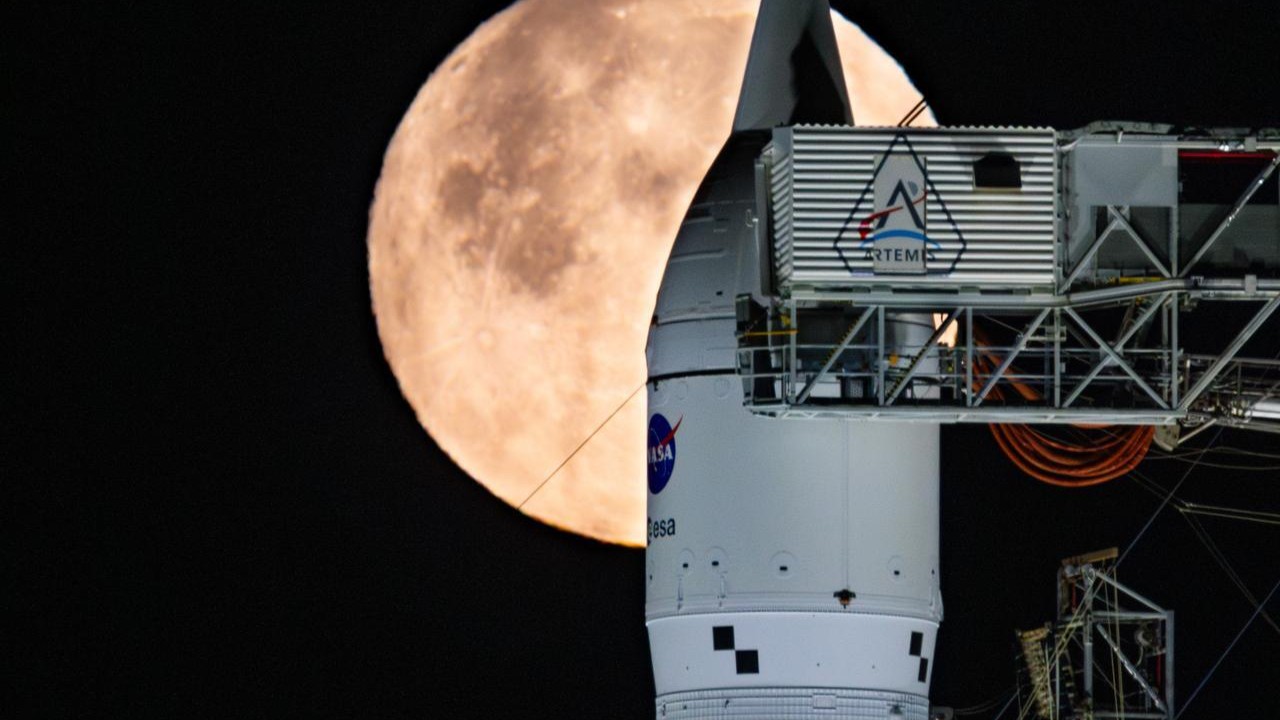Hubble Trouble: One of Four Instruments Stops Working
Breaking space news, the latest updates on rocket launches, skywatching events and more!
You are now subscribed
Your newsletter sign-up was successful
Want to add more newsletters?

Delivered daily
Daily Newsletter
Breaking space news, the latest updates on rocket launches, skywatching events and more!

Once a month
Watch This Space
Sign up to our monthly entertainment newsletter to keep up with all our coverage of the latest sci-fi and space movies, tv shows, games and books.

Once a week
Night Sky This Week
Discover this week's must-see night sky events, moon phases, and stunning astrophotos. Sign up for our skywatching newsletter and explore the universe with us!

Twice a month
Strange New Words
Space.com's Sci-Fi Reader's Club. Read a sci-fi short story every month and join a virtual community of fellow science fiction fans!
One of the four astronomical instruments on the Hubble Space Telescope shut down earlier this week and engineers are trying to pin down the problem. The other three instruments continue to operate normally.
The instrument, called the Space Telescope Imaging Spectrograph (STIS), does not make the classic pictures that Hubble is famous for, but instead splits light into its constituent colors. It has been used to discover dim stars that reveal clues about the age of the universe, study planet-forming environments around other stars and provide insight into black holes.
The STIS stopped working Tuesday, Aug. 3, going into what officials call a suspended mode, according to a NASA statement released Friday. Mission managers think there is a malfunction in a power converter. It is not known if the glitch can be fixed.
The spectrograph was installed during the second Hubble servicing mission, in 1997. It was designed to operate for five years. NASA says it has met or exceeded all its scientific requirements.
NASA has convened an Anomaly Review Board to investigate the problem and determine if the instrument is recoverable.
"A final decision on how to proceed is expected in the coming weeks as analysis of the problem progresses," according to the statement.
The instrument is not slated for replacement by the next servicing effort. That mission, which NASA Administrator Sean O'Keefe cancelled in January due to safety concerns for the space shuttle fleet, is up in the air right now. O'Keefe reconsidered his decision and said a robotic mission might be undertaken, though he continues to resist expert suggestions that a manned shuttle mission to service the telescope remain a serious option.
Breaking space news, the latest updates on rocket launches, skywatching events and more!
Hubble's other instruments -- the Near Infrared Camera and Multi-Object Spectrometer (NICMOS), the Advanced Camera for Surveys, and the Wide Field/Planetary Camera 2 -- are not affected by the problem.
The STIS is used for about 30 percent of Hubble's observing time. A standby list of targets for the other three instruments will likely take up that time.
Hubble has otherwise been in good health. But its batteries and pointing gyroscopes are expected to fail in the next two to three years. If they are not replaced by a robotic or human servicing mission, Hubble will likely cease operations by 2008, engineers have concluded.
- Hubble Special Report

Rob has been producing internet content since the mid-1990s. He was a writer, editor and Director of Site Operations at Space.com starting in 1999. He served as Managing Editor of LiveScience since its launch in 2004. He then oversaw news operations for the Space.com's then-parent company TechMediaNetwork's growing suite of technology, science and business news sites. Prior to joining the company, Rob was an editor at The Star-Ledger in New Jersey. He has a journalism degree from Humboldt State University in California, is an author and also writes for Medium.
